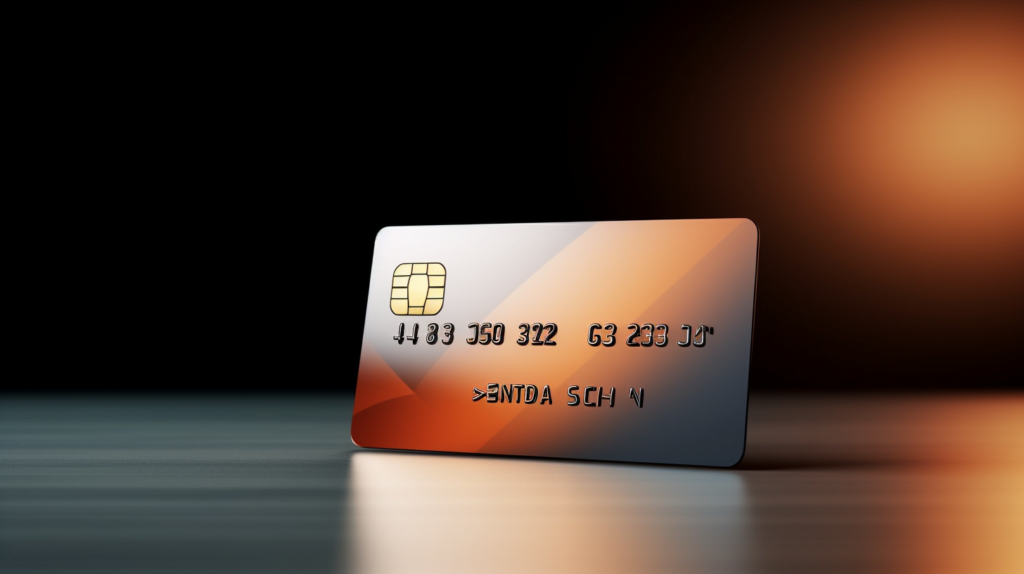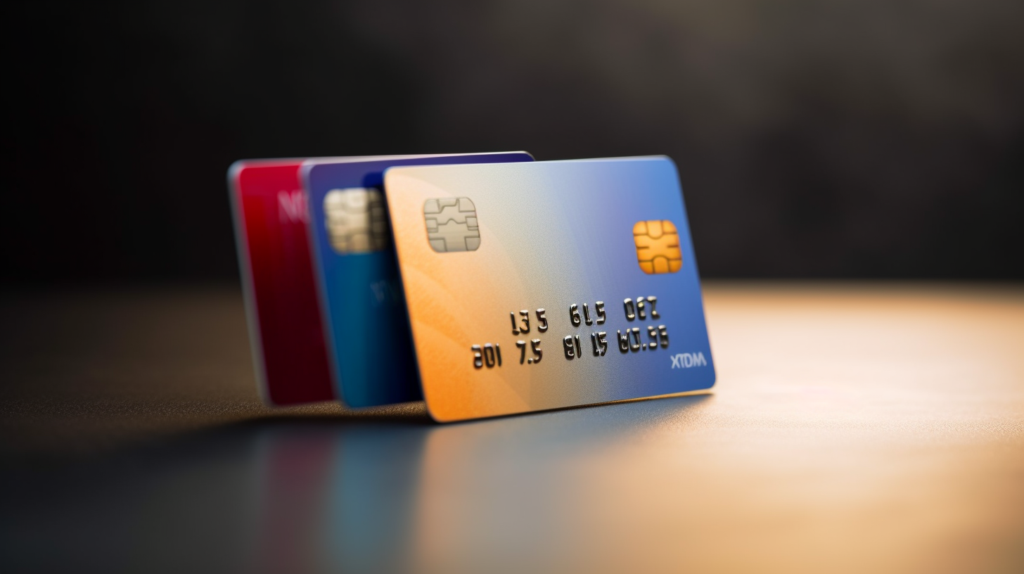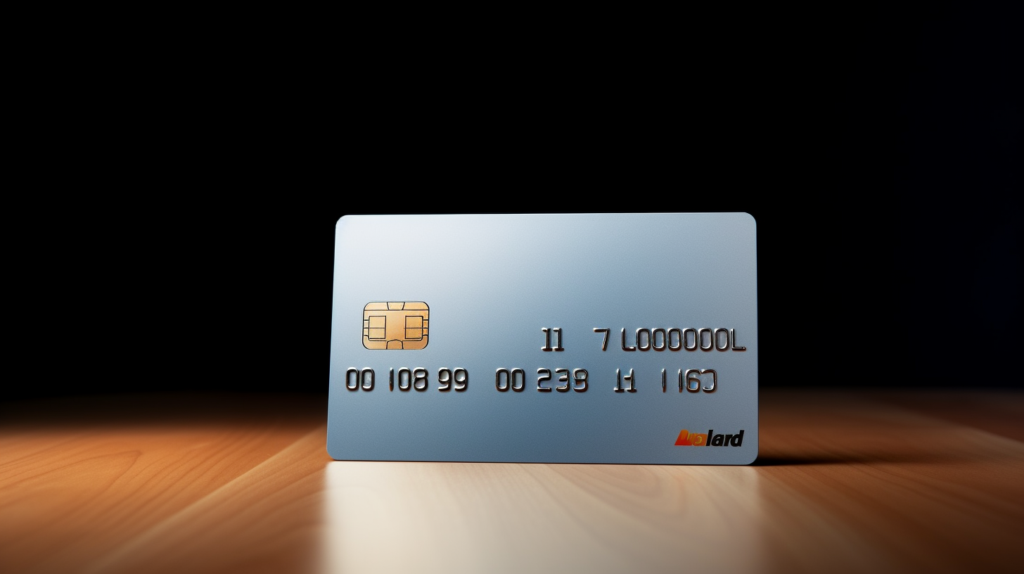Credit cards have become a part of our everyday life, enabling us to make purchases online and in-store without carrying cash. Visa is the world’s largest payment processor with over 3.5 billion active cards globally.
However, with credit card usage becoming more widespread, other payment networks have emerged to compete against Visa.
In this article, we will explore the top competitors of Visa in the credit card industry, analyzing their strengths, weaknesses, fees, rewards, acceptance, security, and more.
By the end of this article, you will be able to make an informed decision on the right credit card for you.
5 Visa Competitors That You Must Know About
Visa’s main competitors are Mastercard, American Express, Discover, JCB, and UnionPay. Let’s take a closer look at each one of them.
Mastercard
Mastercard is the second largest credit card processing company globally, with over 2.8 billion cards in circulation. Unlike Visa, Mastercard doesn’t issue credit cards directly to consumers, but rather partners with banks and financial institutions to provide Mastercard-branded credit cards.
One of the key advantages of Mastercard is its extensive global acceptance network. Mastercard is accepted in over 210 countries and territories worldwide.
Mastercard offers various types of cards with varying rewards and cashback incentives, including travel rewards, gas rewards, and cashback on purchases.
However, Mastercard has some drawbacks as well. Mastercard’s foreign transaction fees are higher than Visa’s, which can add up if you often shop internationally.
Additionally, some Mastercard rewards programs charge high annual fees, reducing the value of the rewards.

American Express
American Express is a well-known credit card brand that offers various types of credit cards, including charge cards, credit cards, and co-branded cards. American Express cards typically cater to high-income individuals with premium benefits and services.
One of the significant benefits of American Express cards is its rewards program. American Express offers various rewards, including points that can be redeemed for travel, entertainment, merchandise, and more.
Additionally, American Express offers complimentary access to airport lounges and hotel upgrades to its premium cardholders.
However, American Express also comes with some drawbacks. American Express cards aren’t as widely accepted globally compared to Visa and Mastercard.
Also, American Express charges foreign transaction fees and annual fees, which can be a significant expense if you frequently shop internationally.
Discover
Discover is an American payment network that offers credit cards and cashback rewards. The company is known for its rewards program, which offers cashback on purchases, including gas, restaurants, and online shopping.
One of the significant benefits of Discover is its cashback rewards program. Discover offers up to 5% cashback rewards on select categories of purchases, which can make Discover cards an attractive option for those looking to maximize their rewards.
However, Discover also has some limitations. Discover cards aren’t as widely accepted globally compared to Visa and Mastercard. Discover also doesn’t offer as many services and benefits as its competitors, such as travel insurance and airport lounge access.
JCB
JCB is a Japanese credit card brand that offers credit cards to residents of Japan and other countries. JCB cards offer various rewards and benefits, including cashback, rewards points, and special promotions.
One of the significant benefits of JCB is its acceptance in Japan. JCB is widely accepted in Japan, where credit cards are the primary mode of payment. Additionally, JCB offers various rewards and promotions tailored to Japanese consumers’ interests and preferences.
However, JCB’s acceptance outside of Japan is limited. JCB isn’t as widely accepted as Visa or Mastercard, which can make it challenging to use outside of Japan.
UnionPay
UnionPay is a Chinese payment network that offers credit and debit cards globally. UnionPay is the biggest credit and debit card issuer in the world, with over 9 billion cards issued to date.
One of the significant advantages of UnionPay is its wide acceptance in China. UnionPay is the primary bank card supplier in China, with over 90% market share.
Additionally, UnionPay offers various types of credit cards, catering to different customer needs and preferences.
However, UnionPay’s acceptance is limited outside of China. Additionally, UnionPay charges higher foreign transaction fees compared to Visa and Mastercard, making it a less cost-effective option for shopping globally.

Comparison of Visa and its Competitors
When choosing a credit card, it’s essential to consider the fees, rewards, acceptance, security, and customer service. Let’s compare Visa and its competitors on each of these factors.
Fees and Charges
When it comes to fees and charges, Visa tends to be cost-effective compared to its competitors. Visa cards typically offer lower foreign transaction fees and annual fees.
Additionally, Visa cards typically offer lower penalty fees for late payments and bounced checks.
Rewards and Benefits
Visa offers various rewards and benefits, including cashback rewards, travel rewards, and exclusive discounts. However, some Visa cards’ rewards programs have high annual fees and limited rewards redemption options.
Mastercard offers various types of rewards, including travel rewards, gas rewards, and cashback rewards. Mastercard rewards programs offer more flexibility and variety compared to Visa.
American Express offers various rewards, including travel rewards, cashback rewards, and hotel upgrades. American Express’ rewards programs typically cater to high-income earners, with premium benefits and services.
Discover offers cashback rewards on purchases, including gas, restaurants, and online shopping. Discover’s rewards program is straightforward and easy to understand, with no blackout dates or limitations.
JCB offers various rewards and promotions tailored to Japanese consumers’ interests and preferences, including cashback, rewards points, and special discounts.
UnionPay offers various types of credit cards, catering to different customer needs and preferences. However, UnionPay’s rewards programs tend to be less attractive compared to its competitors.
Global Acceptance
Visa is widely accepted globally, with over 200 countries and territories accepting Visa cards. Visa offers various types of credit cards, catering to different customer needs and preferences.
Mastercard is accepted in over 200 countries and territories worldwide, making it a close competitor to Visa in terms of global acceptance.
American Express is accepted in over 160 countries worldwide, making it less widely accepted compared to its competitors.
Discover is less widely accepted compared to Visa and Mastercard, with limited global acceptance.
JCB is widely accepted in Japan, with limited global acceptance.
UnionPay is widely accepted in China, with limited global acceptance.
Security Features
Visa, Mastercard, American Express, Discover, JCB, and UnionPay offer various security features to protect customers’ sensitive financial information from fraud and theft.
These features include SSL encryption, two-factor authentication, and real-time fraud monitoring.
Customer Service
Visa, Mastercard, American Express, Discover, JCB, and UnionPay offer customer service support, including dispute resolution, card cancellation, and account management.
Each company’s customer service quality may vary, with some offering more comprehensive support than others.

Pros and Cons of Visa’s Competitors
Mastercard
Pros:
- Extensive global acceptance
- Various types of rewards and benefits
Cons:
- Higher foreign transaction fees compared to Visa
- Some rewards programs charge high annual fees
American Express
Pros:
- Premium rewards programs
- Complimentary access to airport lounges and hotel upgrades
Cons:
- Limited global acceptance
- High annual fees and foreign transaction fees
Discover
Pros:
- High cashback rewards on purchases
- Straightforward and easy-to-understand rewards program
Cons:
- Limited global acceptance
- Fewer services and benefits compared to its competitors
JCB
Pros:
- Widely accepted in Japan
- Various rewards and promotions tailored to Japanese consumers’ interests and preferences
Cons:
- Limited global acceptance
- Fewer services and benefits compared to its competitors
UnionPay
Pros:
- Largest credit and debit card issuer in the world
- Various types of credit cards, catering to different customer needs and preferences
Cons:
- Limited global acceptance
- Higher foreign transaction fees compared to Visa and Mastercard

Pro Tips for Choosing a Credit Card
When choosing a credit card, it’s essential to evaluate your spending habits, financial goals, and credit score. Here are some pro tips to keep in mind:
- Determine your spending habits and financial goals: Identify the type of expenses you make most frequently and choose a credit card that offers rewards and benefits aligned with those expenses.
- Consider your credit score and eligibility requirements: Understand your credit score and choose a credit card that aligns with your credit score and eligibility requirements.
- Look for a card with no annual fees and low interest rates: Choose a credit card with no or low annual fees and lower interest rates to save on costs.
- Compare rewards programs to align with your preferences and lifestyle: Choose a credit card with rewards programs that align with your preferences and lifestyle to maximize your rewards.
- Read and understand the terms and conditions, including cash advance fees and penalty charges: Understand the fees and charges associated with the credit card, including cash advance fees and penalty charges.
Conclusion
In conclusion, Visa has various competitors in the credit card industry, each offering a unique set of benefits and drawbacks.
Mastercard, American Express, Discover, JCB, and UnionPay each offer different rewards, fees, and acceptance, catering to different customer needs and preferences.
When choosing a credit card, it’s essential to evaluate your spending habits, financial goals, and credit score, and compare rewards programs and fees to make the most informed decision.


 Tags:
Tags:










